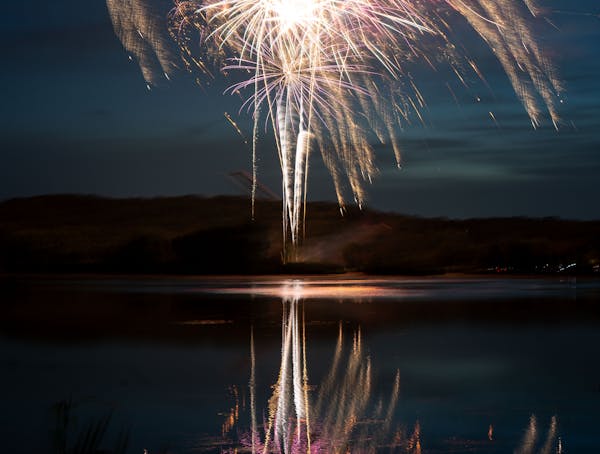Maikia Moua has been coming to the annual Hmong International Freedom Festival in St. Paul since she was 7 years old. In the early years, she helped at her parents' clothing booth, then would walk the grounds delighting in the vendors selling traditional foods, toys, movies and other goods.
Now 30, she looks forward to the festival for a different reason: playing flag football.
Moua is one of 30,000 people from around the country expected in Como Park for the two-day festival starting Saturday morning. Sometimes dubbed the "Olympics of the Hmong American community" with tournaments in multiple sports, the gathering also features speakers and performances. It will celebrate its 40th anniversary after a two-year pandemic hiatus.
Longtime attendees are eager to reconnect.
"This is huge for Hmong women and for the Hmong girls in the community that can finally come out and see a lot of us still playing," said Moua, explaining that flag football offers her a sisterhood with other Hmong women and a way for her to express her athleticism.
Sports have been an integral part of the festival since it was founded four decades ago to bring the Hmong community together. Tournament games now include soccer, cornhole, volleyball and kato — a volleyball-like game where players use their feet.
This year, over 100 vendors have signed up to sell food and clothing. Attendees can expect to see sticky rice, grilled chicken and papaya salad in the food booths as well as new-to-the-festival fare including doughnuts and Indian food.
Vendor numbers are up from 2019, according to Kyarii Ly, secretary of United Hmong Family Inc., which is holding the festival.
Guest speakers include Lt. Gov. Peggy Flanagan and Minneapolis Council Member Jeremiah Ellison. The organization, which also hosts an annual Hmong Minnesota New Year celebration, is funded by a mix of community and private support.
St. Paul Parks and Recreation Director Andy Rodriguez said in an e-mailed statement that the city is excited to see the event return.
"The festival is the largest Hmong sports event in the United States and serves as a destination for athletes and spectators from around the country," he said. "We are proud to hold such an important cultural event in our city."
The festival has grown tremendously since it started out as a small, potluck-style gathering.
"The festival started out as a picnic for our people. There weren't a lot of us in the community," Ly said. "It was a chance for the Hmong that were present in Minnesota to meet up and have a place to connect."
The makeup of visitors has changed, too. Mee Vang, president of United Hmong Family Inc., said that people who are not part of the Hmong community have started coming to the festival the last few years.
The two-year pause was difficult, leaders said.
"It was hard, very hard on a lot of us. A lot of us women, we take our time playing this sport very seriously," Moua said. "There was nothing to look forward to."
Because many members of the Hmong community live in multigenerational homes, it was hard to limit the spread of the pandemic, said Vang, who has been coming to the event since she was a child.
"We've lost a lot of lives during COVID, and a lot of people lost jobs," she said. "But, those of us that are still here are going to be strong, and we are going to stick together."
Festivities will begin at 10:30 a.m. Saturday. Admission is $10. Tickets are available at the entrances.

Want to share info with the Star Tribune? How to do it securely

A Minnesota field guide to snow shovels: Which one's best?
Sign up for Star Tribune newsletters

